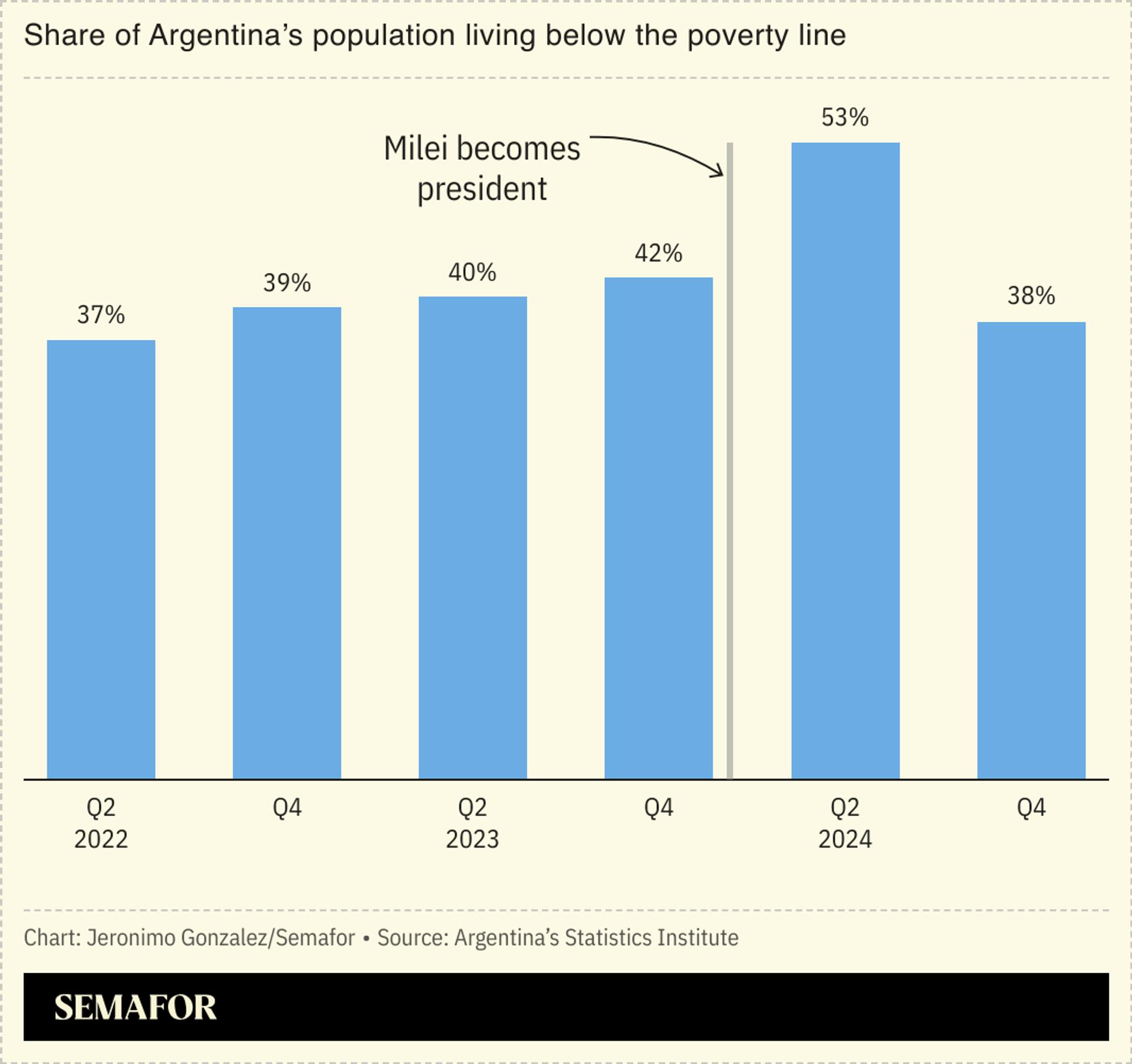The News
Argentina’s poverty rate fell sharply in the second half of 2024, according to new government data, in a further boost to President Javier Milei’s radical economic agenda.
The share of Argentines living below the poverty line fell from 53% in the first six months of 2024 to 38% in the second half, driven by a sharp drop in inflation.
Milei has deployed “shock therapy” — including deep cuts to government spending and devaluing the peso — since taking office in late 2023, measures which helped to tame inflation but sent poverty rates soaring. The falling poverty figures are the latest sign that his policies are reaping rewards, but challenges remain, analysts cautioned.

SIGNALS
Statistics may not reflect reality for many Argentines
Some analysts have warned that Monday’s positive figures do not reflect the reality for many Argentines under Javier Milei. Incomes remain lower than in 2023, and many people have been pushed toward “more precarious, subsistence jobs,” the director of the Argentina Social Debt Observatory, a research group told Reuters. Other analysts questioned the reliability of both the data and the agency that releases it: Known as the INDEC, the agency is “capturing very little of what is really happening in the economy,” one economist said, adding that its method for calculating inflation is outdated. “There is a big gap between what the statistics say and what you feel on the streets.”
Javier Milei’s ‘shock therapy’ banks another success
The falling poverty rate indicates that Javier Milei’s policies are achieving “good results that few non-libertarians expected,” libertarian think tank the Cato Institute wrote. The IMF expects Argentina’s economy to grow almost 5% this year after a period of recession. When Milei first became president, “most viewed his promises of radical reform as crazy or unworkable,” Bloomberg wrote. But after a little more than a year in the job, those critics are “having to think again.” Milei’s achievements are “even more striking” considering his outsider status, limited congressional representation, and enduring popularity, one analyst wrote. Mid-term legislative elections in October could “solidify economic expectations,” and “cement his party as the dominant political force ahead of the 2027 presidential elections.”
Argentina’s economic challenges still abound
Milei’s “real challenge” will be to keep poverty decreasing even as he loosens up Argentina’s tight currency controls, one analyst told the Financial Times: “The poverty line in Argentina is very sensitive to inflation, and there is a big question mark about how the economic programme will manage to continue to slow down prices given the increasing pressure on the peso.” A new $20 billion deal with the International Monetary Fund could help build a currency buffer, Reuters wrote, but market uncertainty around a potential weakening of the peso has strained the central bank’s reserves and hurt economic confidence. The economic minister acknowledged the volatility Monday, but argued that Argentina’s macroeconomic picture remained “in order,” The Buenos Aires Times reported.

